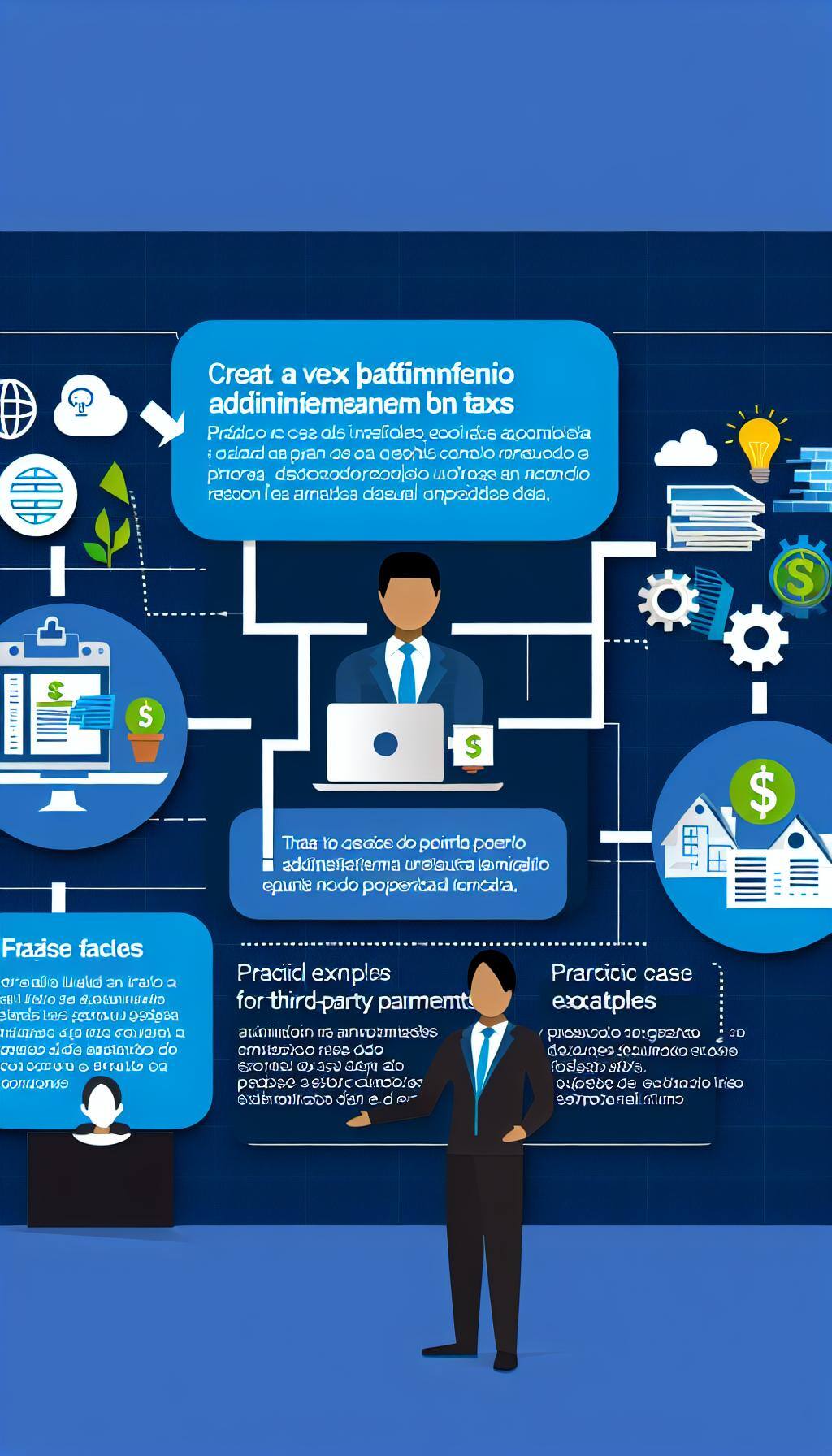Discover how the third-party payment system works in Mexico for property managers on digital platforms and how it affects your taxes.
How Does Third-Party Payment Work in Mexico?
Third-party payment is a tax mechanism that allows property managers on digital platforms to receive income generated by the services provided and transfer part of that income to the property owner, deducting the agreed-upon commissions for their services. This method prevents the manager from accumulating 100% of the income as their own, allowing only the portion corresponding to commissions to be considered as income.
For example, if a manager receives $10,000 for the accommodation of a property and has an agreed commission of 20%, they would transfer $8,000 to the property owner and keep $2,000 as commission. In this way, they would only have to declare the $2,000 commission as income.
It is important to note that third-party payment should not be confused with payment on behalf of a third party, as in the latter case, the manager would be making the payments/expenses of the property on behalf of the property owner. We will address this in another blog post.
Advantages of Using this Tax Modality
The use of third-party payment offers several advantages for property managers on digital platforms in Mexico:
- Prevents the accumulation of all income as one's own, as only the portion corresponding to commissions is considered as income.
- Simplifies the tax filing process, as only the commission received is declared as income.
- Facilitates the distribution of profits between the manager and the property owner, as the commission percentage is established beforehand under contract.
- Helps maintain a good relationship between the manager and the property owner by clearly establishing the responsibilities and benefits of each party.
Who Must Report this Income to the SAT?
In the case of third-party payment, both the manager and the property owner must consider their tax obligations:
- The manager must declare the commissions received for their services as income. These must be included in the annual tax return plus the monthly provisional tax payments as part of the income obtained from business activities (whether company or individual).
- The property owner must declare the income received from the accommodation of their property. These must be included in the annual and monthly tax return as part of the income obtained from the property.
It is important to have a prior agreement between the manager and the property owner that clearly establishes the tax responsibilities of each party.
Legal and Tax Considerations for Property Managers
Property managers on digital platforms must consider some legal and tax considerations:
- It is necessary to have a written contract or agreement between the manager and the property owner, clearly establishing the responsibilities and commission percentages.
- It is recommended to keep a detailed record of income and expenses related to accommodation services to facilitate tax filing.
- It is important to comply with the corresponding tax obligations, such as issuing invoices and filing monthly and annual returns.
- Local regulations and specific regulations for accommodation activities on digital platforms must be taken into account.
It is advisable to have the support of an accountant or tax advisor to ensure compliance with all legal and tax obligations, and at Digitax, we can help you with this tax strategy.
Examples and Practical Cases of Third-Party Payment Application
Below are some examples and practical cases of third-party payment application:
- Example 1: A manager receives $15,000 for the accommodation of a property and has an agreed commission of 25%. They transfer $11,250 to the property owner and keep $3,750 as commission. They would declare $3,750 as income.
- Example 2: A manager receives $8,000 for the accommodation of a property and has an agreed commission of 15%. They transfer $6,800 to the property owner and keep $1,200 as commission. They would declare $1,200 as income.
These examples show how third-party payment allows for a clear establishment of the income that corresponds to the manager and the income that corresponds to the property owner, facilitating compliance with the tax obligations of both parties.
Legal Basis:
- Rule 2.7.1.3 of the RMF: Issuance of CFDI by commission agents and providers of collection services.
- Article 11 of the LIVA: Transfer of tax in operations through commission agents.
- Article 120, section I of the LISR: Definition of business activity.
- Article 273 of the Commercial Code: Definition of commercial commission.
Invoicing Process for Third-Party Income (Third-Party Payment)
- Start: Company "A" establishes a collection contract with Company "B."
- "B" receives collections on behalf of "A": Company "B" starts receiving payments from Company "A's" clients.
- "B" performs operations on behalf of "A": Company "B" manages collection operations, acting on behalf of Company "A."
- "B" issues the CFDI of payments on behalf of "A": Company "B" generates the Digital Tax Receipts Online (CFDI) for the payments received, using the name of Company "A."
- "B" issues CFDI to "A" for the commission or provision of collection services: Company "B" invoices Company "A" for the collection services provided, detailing the corresponding commission.
- "B" issues CFDI on behalf of "A" with third-party complement: Company "B" issues an additional CFDI on behalf of Company "A," using the third-party complement to identify the payments received on behalf of "A."
- End: The process concludes with the issuance of all corresponding CFDIs, both for payments and for the commission for collection services.
Additional Notes:
- The CFDI of payments must be related to the original invoice being settled, i.e., the one that has the third-party complement incorporated.
- In addition to the CFDIs issued on behalf of the client, the commission agent or service provider is obligated to issue the CFDI corresponding to the commission or consideration for the respective service.
This process ensures that all transactions are properly documented and comply with tax requirements.


Comments